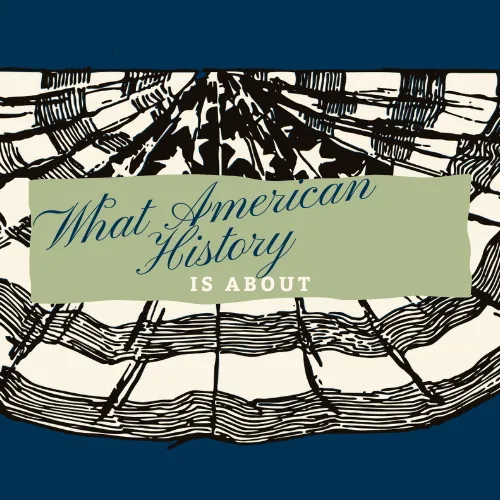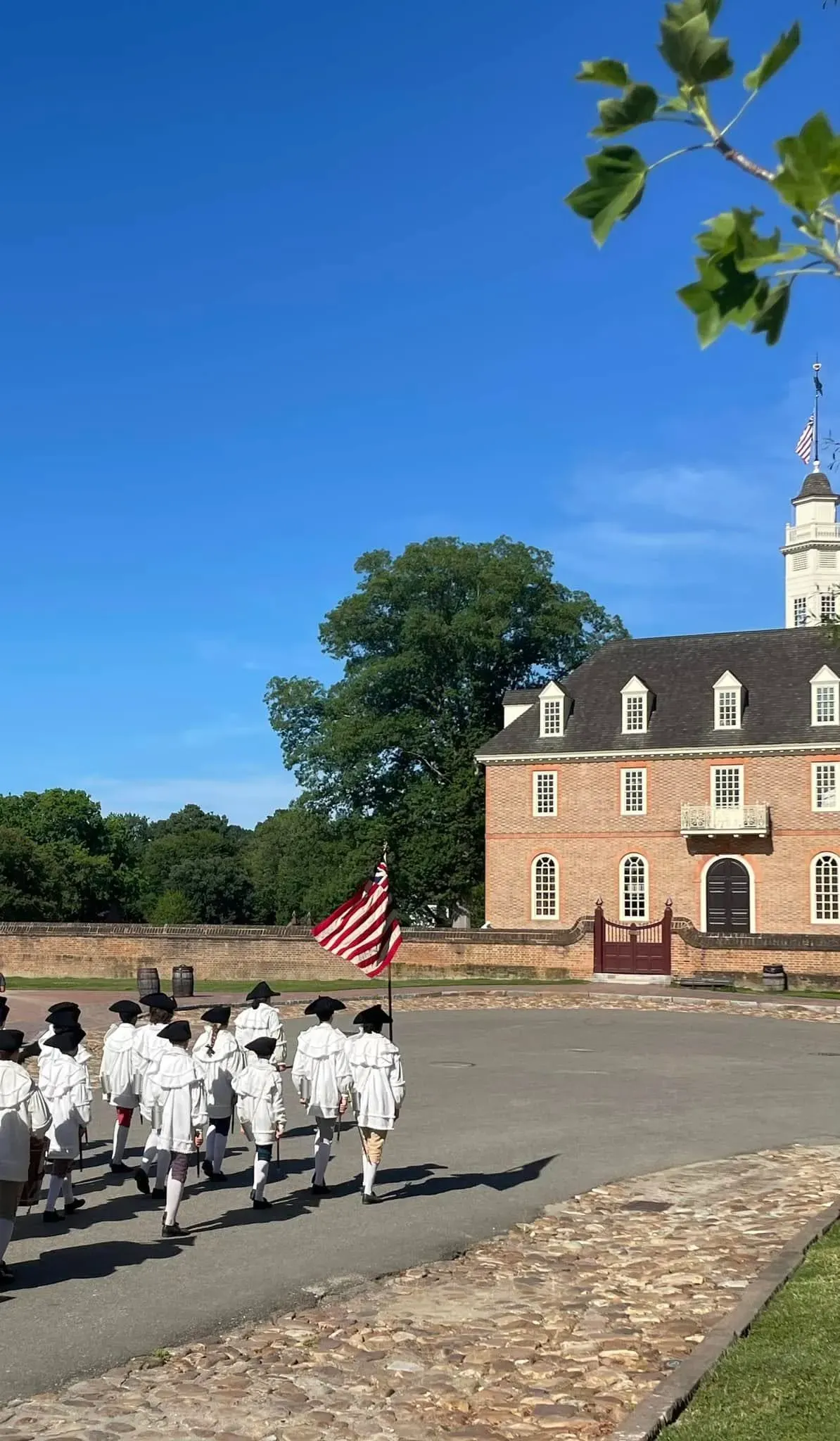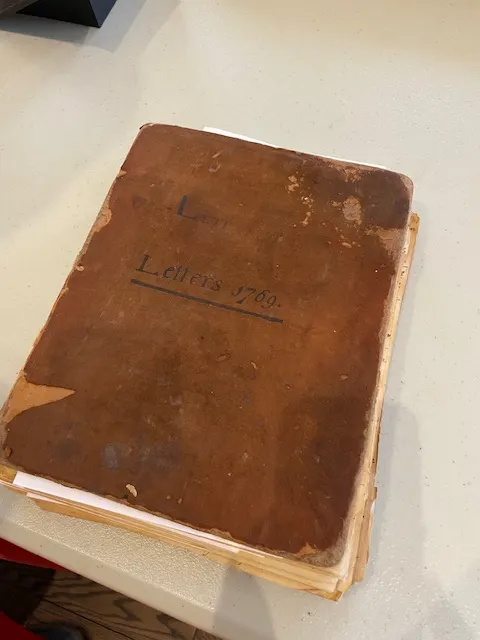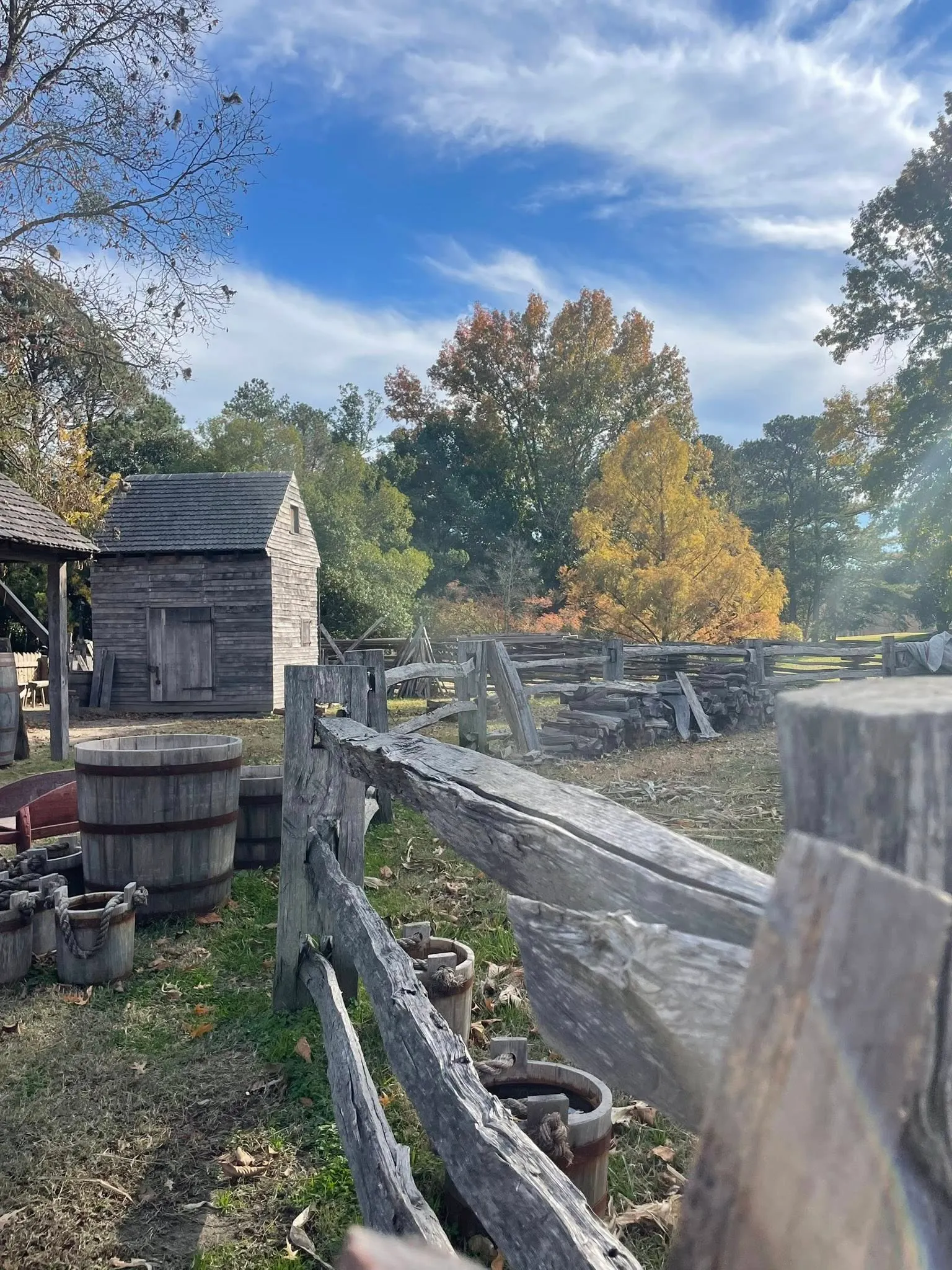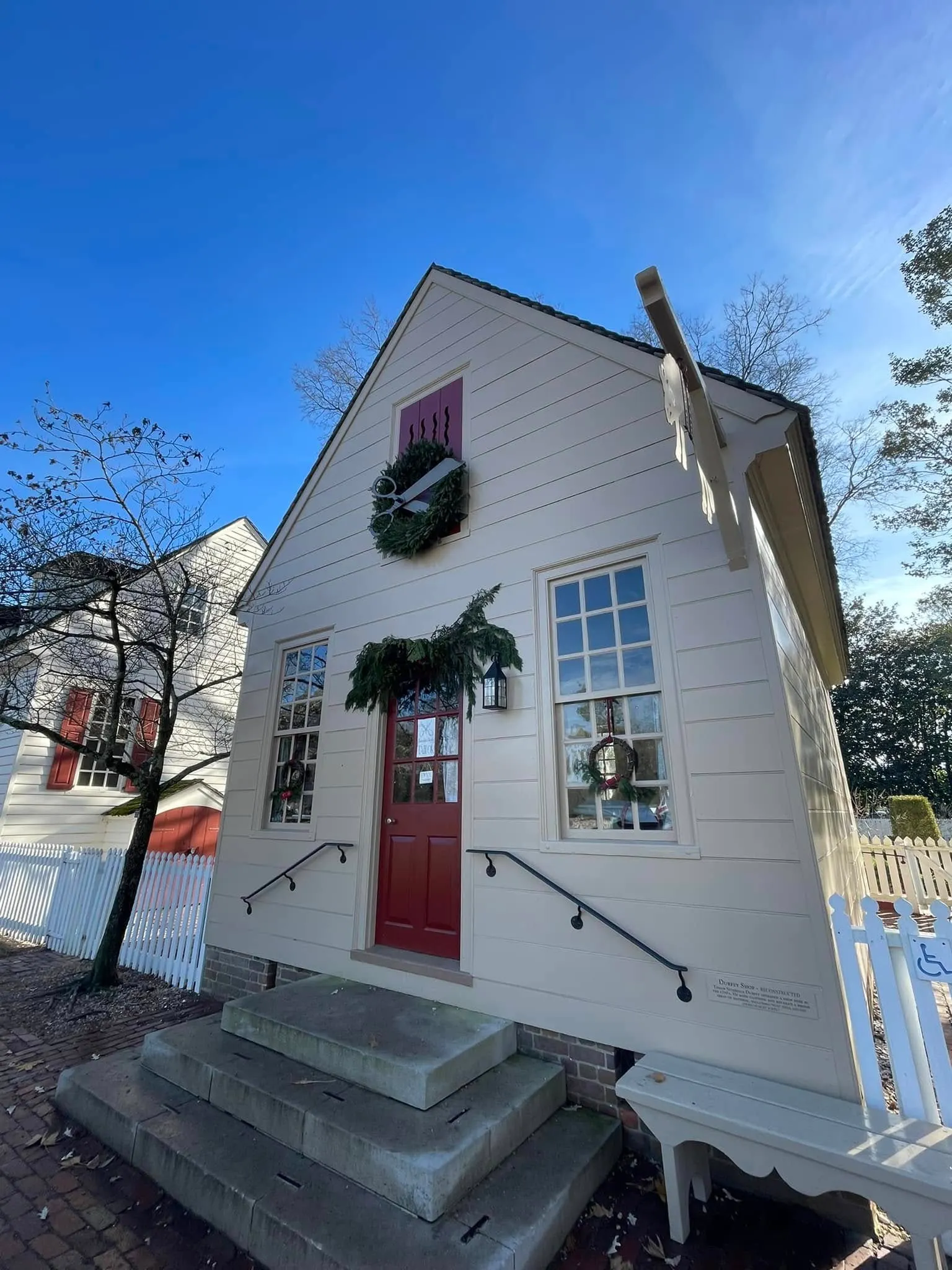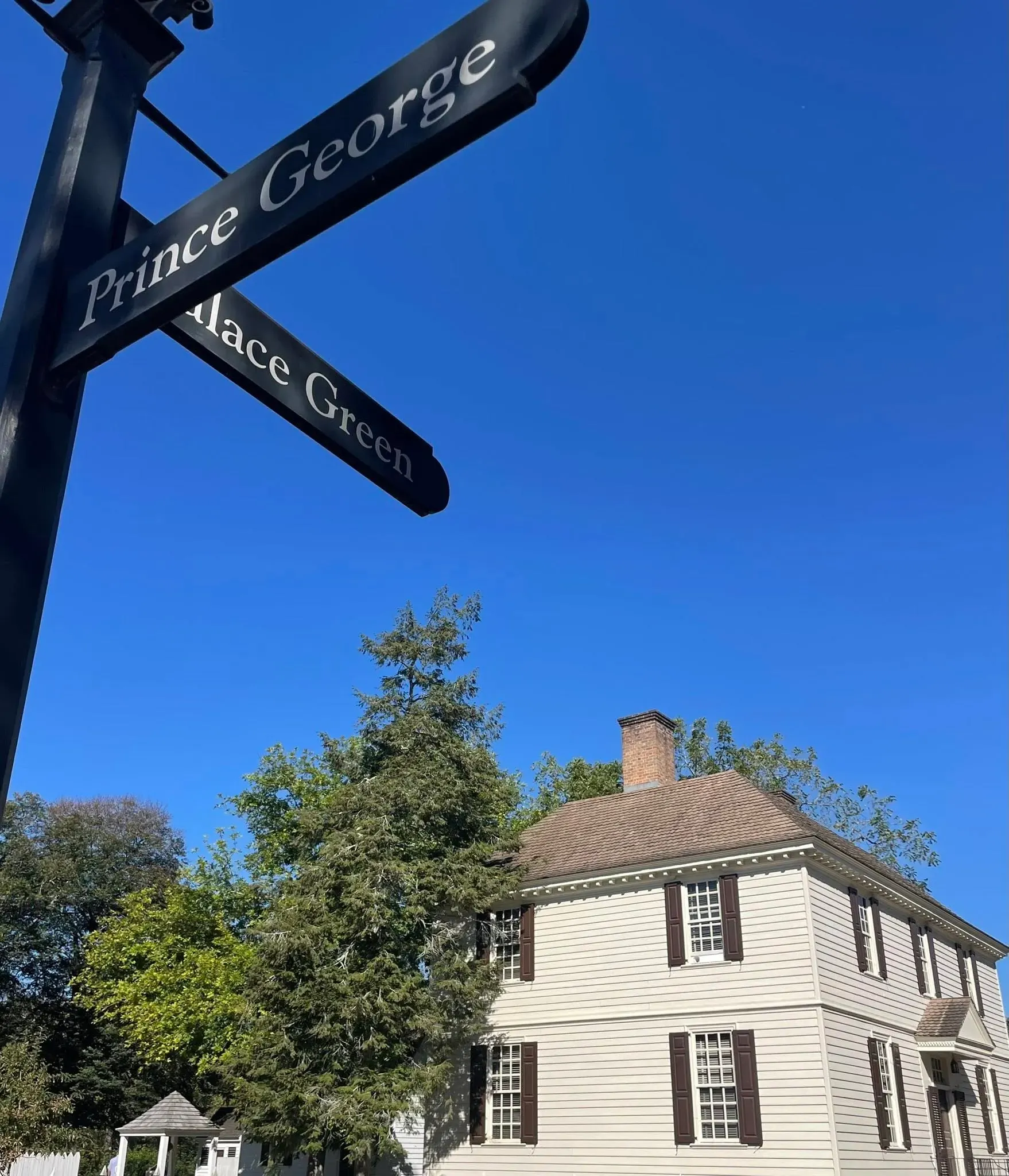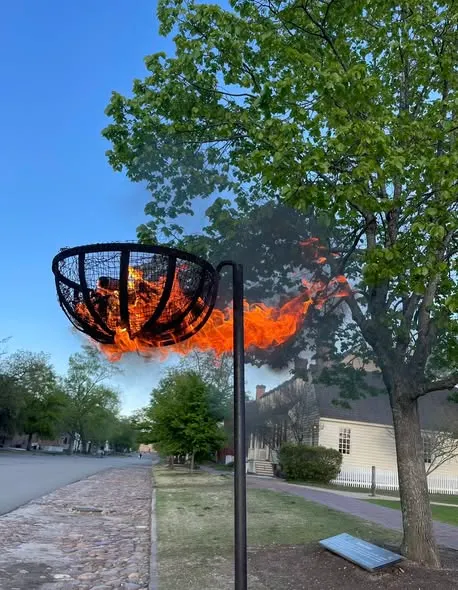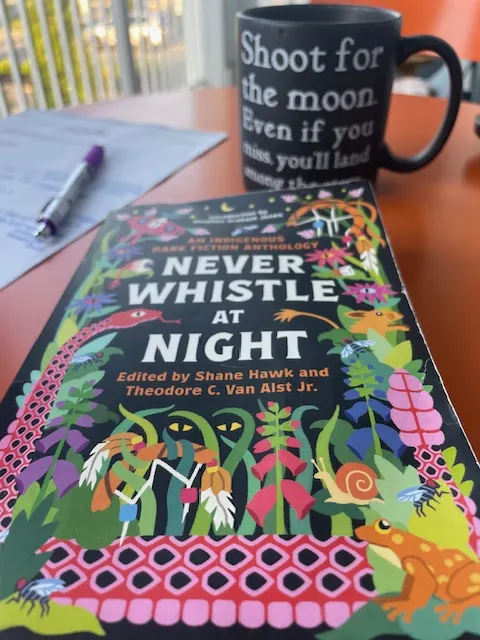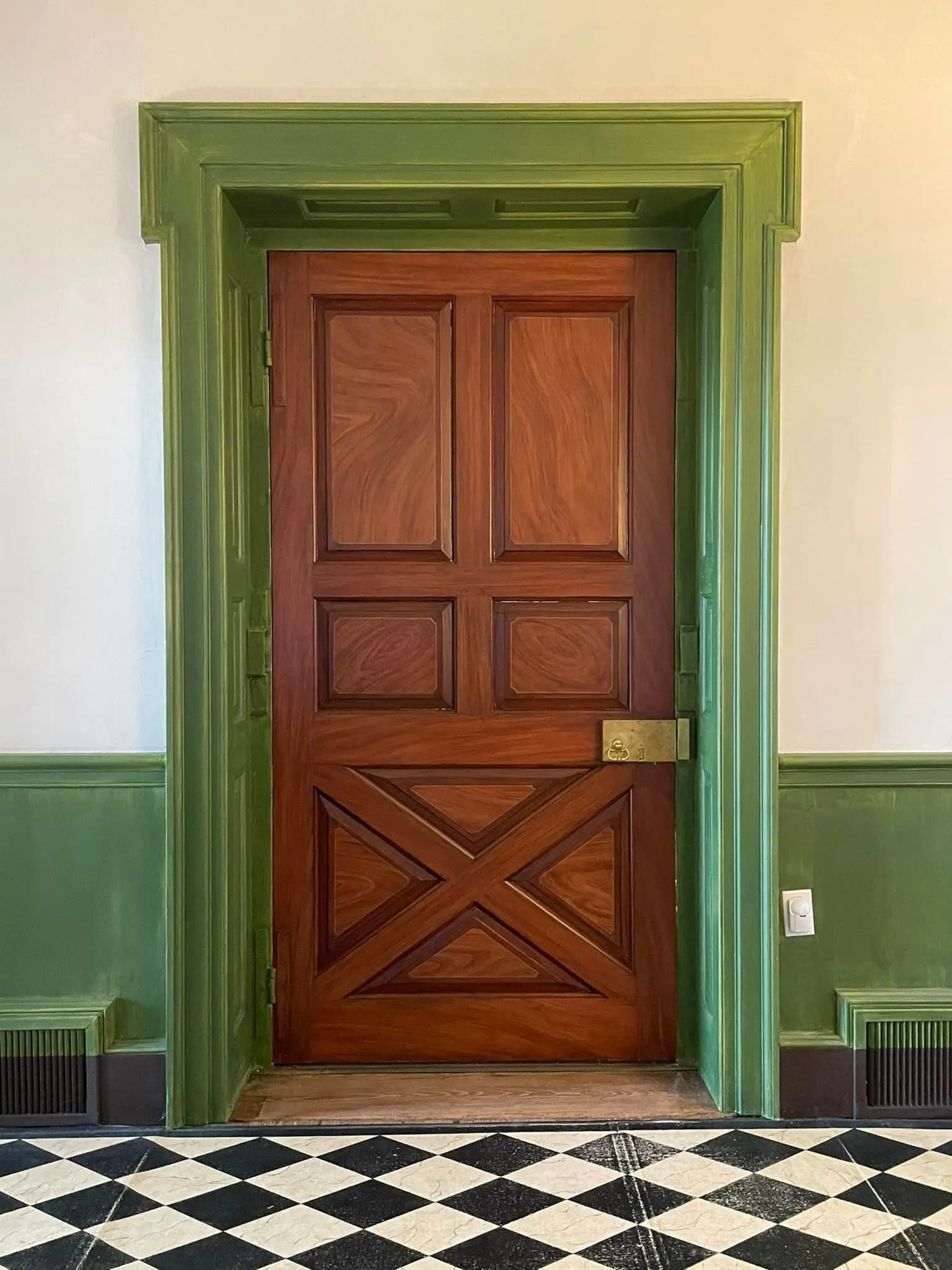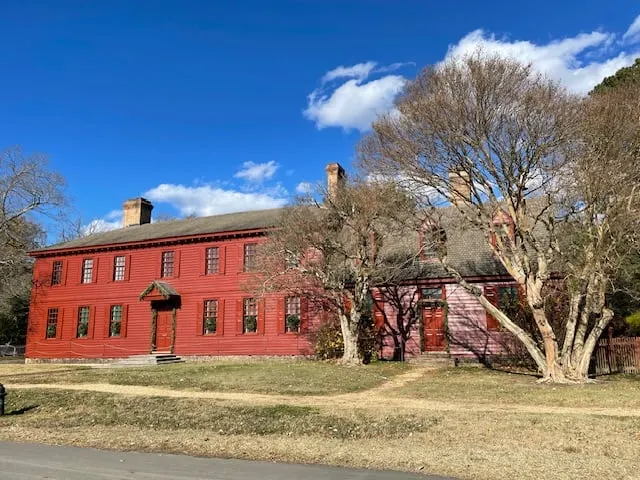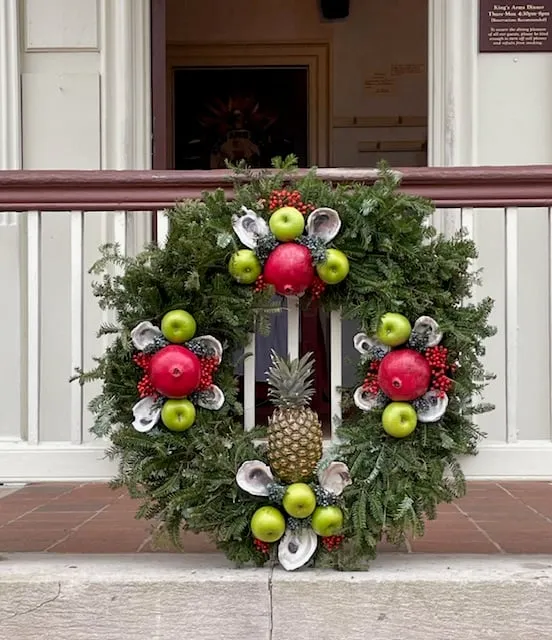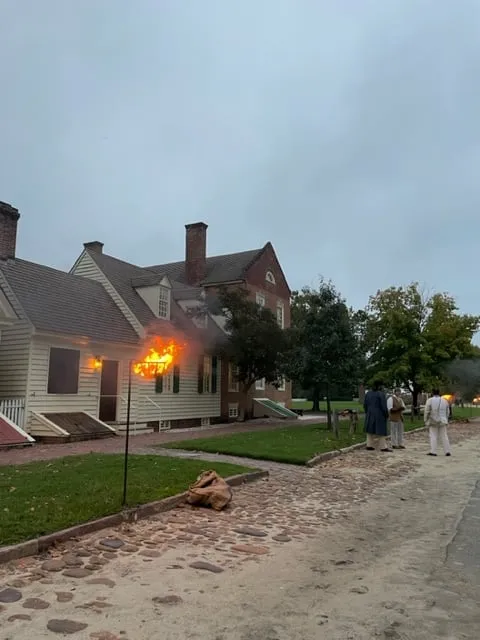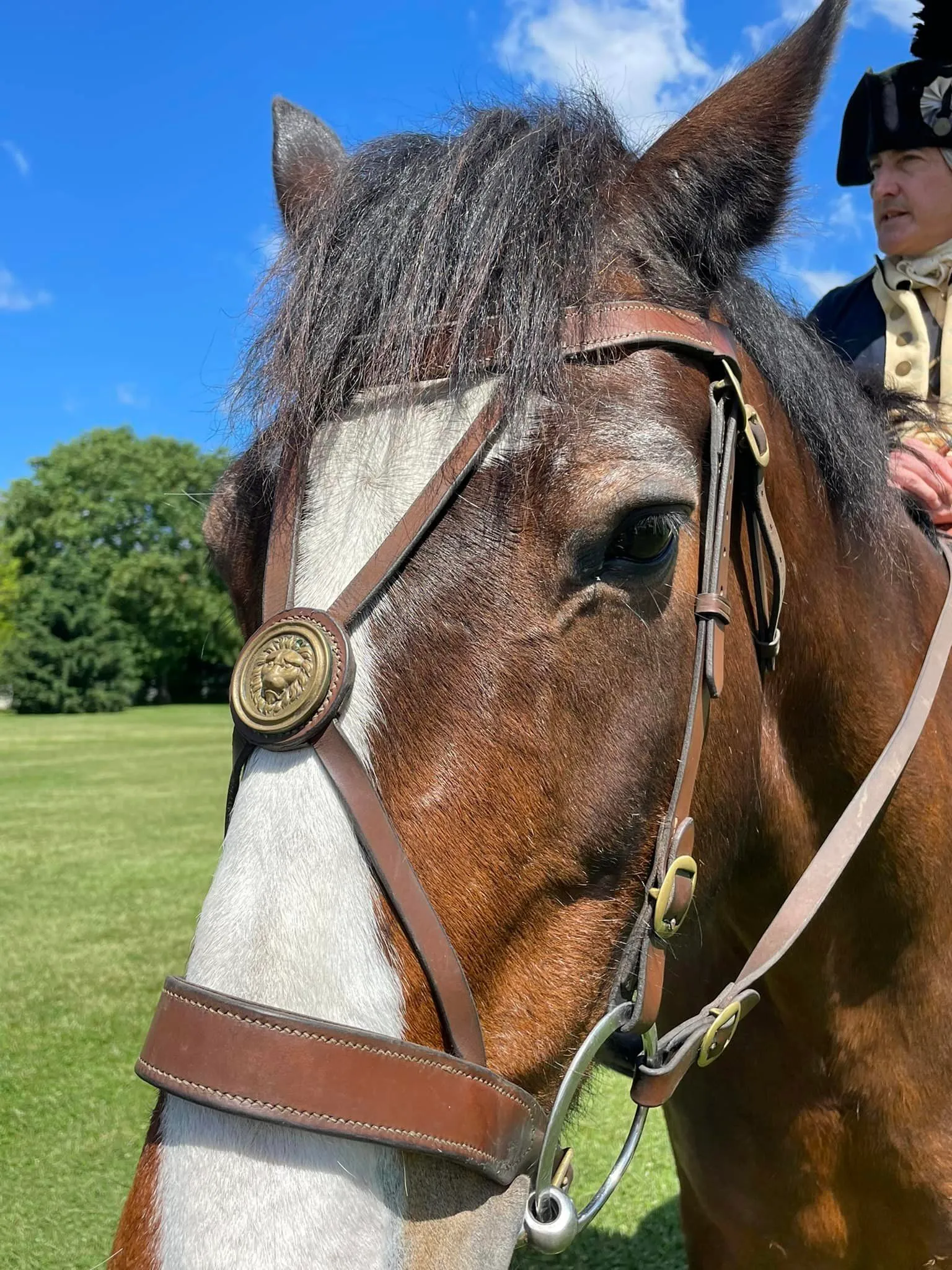I Wish I Could Ask Questions of the People From Early America: Thank Goodness We Have Letters and Diaries!
Interviews are coming to the What American History Is About blog.
Interviews are a fantastic way to learn from others.
I'm currently finalizing my 2024 Summer Interview Series on the Free At 50 blog. After an official announcement post diving into the details, it occurred to me: do similar posts here.
Ideas I'm working on:
- people who share history the way I do or in other ways (podcasts, books, re-enactments)
- people who preserve history (curators, archaeologists, tradesmen/women)
Spoiler alert: I won't be interviewing anyone who actually lived in 18th century America- or any previous era if they've been lost to us.
I know- that's a shocking revelation.
Opportunities exist to see how people lived and what they thought- in their own words.
Although so much has been lost with the decades, there are plenty of primary sources, including letters and diaries, that have survived into the future. You might notice I drop words from history to close just about every single article on this blog.
This morning I was inspired by an episode of my friend Bryan Austin's Let's Be Frank podcast- click here so you can hear it. In fact, it gave me the idea of how to structure a post I've been wanting to do for awhile: one focused on Ben Franklin. But that's for later.
Today: a whole post dedicated to words from history. Broken down by:
- who wrote the words
- a topic I'd have loved to ask them about in an interview
- and a link to the source (and maybe some extra links!)
The goal: give you a glimpse into the daily life and the personalities of the humans that made up history. It's so easy to see them as one-dimensional but they WERE human- complex even.
By reading their actual words, I'll leave the interpretations to you, not Hollywood (lol) --but you can see by the headings what my thoughts are! Caution: descent into rabbit holes are likely to follow.
Disclaimer: As a blogger, I use affiliate links sometimes! I may receive commission from purchases I share; it does not change your price but sometimes you might get a discount.
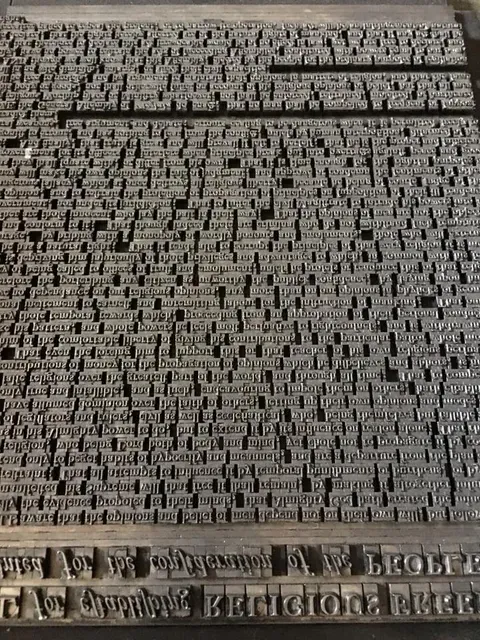
Printers type, CW Print Shop
Names from early America you've probably heard.
Martha Washington-the practical mom.
Our first first lady, Martha Dandridge Custis Washington is a personal favorite of mine. It seems that less of her writing is easily found to amateur historians and history lovers like me but I'll take what I can find. Fortunately I can also rely on the woman and true historian who brings her to life in Colonial Williamsburg (CW), Katharine Pittman, to keep the information coming.
The general topic: parenting and budgeting
The specific topic: purchasing clothes for a nine year old
Martha Washington to Mrs. Shelbury, 10 August 1764
Mount Vernon 10th August 1764.
Madam
In an Invoice to Mr Cary I have directed all the Goods for Miss Custis’s use to be got from you as I approvd of your last years choice1—Such things as Misses of her age usually wear here I have sent for; but if you can get those which may be more genteel and proper for her, I shall have no objections to it, provided it is done with frugality, for as She is only nine year’s old a superfluity, or expence in dress woud be altogether unnecessary—
(letter continues)
Link to the source to read the letter in full, with citations.
Link to facts about Lady Washington, written by Katharine Pittman.
Link to a related post on this blog: a letter inspired me to write about Abigail Adams and her letters.
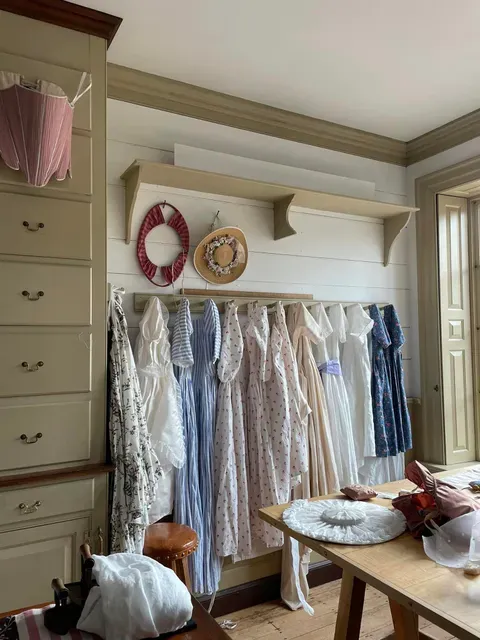
Dresses made by CW's mantua-makers
George Washington-the reliable diarist and young surveyor.
Before the Seven Years War, before the American Revolution and well before the Presidency, George Washington was a surveyor. This bit from the Washington Papers is a diary entry done while surveying Lord Fairfax' land in Virginia.
Why is this bit interesting to me? So many reasons! But I love the peek into life without dishes. Blogger's note: I added a break so it's a bit easier to read.
The general topic: life as a surveyor in the 1740s
The specific topic: the day's accomplishments and details of camp
[Diary entry: 8 April 1748]
Fryday 8th. We breakfasted at Casseys & Rode down to Vanmetris’s to get all our Company together which when we had accomplished we Rode down below the Trough in order to Lay of Lots there. We laid of one this day. The Trough is couple of Ledges of Mountain Impassable running side & side together for above 7 or 8 Miles & the River down between them. You must Ride Round the back of the Mountain for to get below them.
We Camped this Night in the Woods near a Wild Meadow where was a Large Stack of Hay. After we had Pitched our Tent & made a very Large Fire we pull’d out our Knapsack in order to Recruit ourselves. Every[one] was his own Cook. Our Spits was Forked Sticks our Plates was a Large Chip as for Dishes we had none.
Link to the source for further links and citations.
Link to a basic overview of George Washington, and how he's interpreted in CW.
Link to a related post on this blog: some favorite quotes of George Washington I compiled- get to know him a little more and see why I love reading his words SO MUCH.
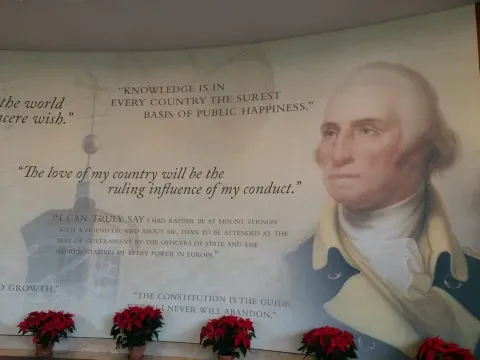
Photo taken at Mt. Vernon
Alexander Hamilton-the man trying to explain himself and dispel possible gossip.
I admit: I haven't seen the musical and I don't intend to. That said, it's more fun IMO to read the words of Hamilton - especially any that were written to Aaron Burr. Here's a glimpse into the personality of the man himself.
The general topic: his relationship with Aaron Burr
The specific topic: clarification of his words to describe Burr
From Alexander Hamilton to Aaron Burr, 20 June 1804
To Aaron Burr
New York June 20. 1804
Sir
I have maturely reflected on the subject of your letter of the 18th instant; and the more I have reflected the more I have become convinced, that I could not, without manifest impropriety, make the avowal or disavowal which you seem to think necessary.
The clause pointed out by Mr. Van Ness is in these terms “I could detail to you a still more despicable opinion, which General Hamilton has expressed of Mr. Burr.” To endeavour to discover the meaning of this declaration, I was obliged to seek in the antecedent part of the letter, for the opinion to which it referred, as having been already disclosed. I found it in these words “General Hamilton and Judge Kent have declared, in substance, that they looked upon Mr. Burr to be a dangerous man, and one who ought not to be trusted with the reins of Government”. The language of Doctor Cooper plainly implies, that he considered this opinion of you, which he attributes to me, as a despicable one; but he affirms that I have expressed some other still more despicable; without however mentioning to whom, when, or where.
Link to the source so you can read the letter in full, with citations- and get the links to the full set of correspondence back and forth. (grab coffee if you dig deeper on this one my friends!)
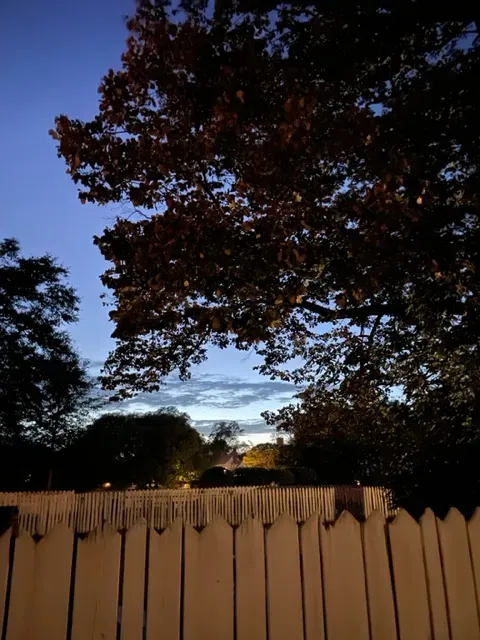
Night-time view in CW
Thomas Jefferson-the Francophile who loved the arts-- and manners!
Ohhh how I love to read Jefferson- I had to finish this post with him.
And this bit is classic "TJ." As you likely know, the primary author of our Declaration of Independence was sent to France during the Washington Administration - and it was such a perfect fit for a man so passionate about everything from art and music to architecture.
I'm pulling an excerpt towards the end of a letter from Jefferson to a Charles Bellini. Oh the words like "brutes" and "lowest of people." The times were different!
From Thomas Jefferson to Charles Bellini, 30 September 1785
To Charles Bellini
Paris Sep. 30. 1785.Dear Sir
.....
Here it seems that a man might pass a life without encountering a single rudeness. In the pleasures of the table they are far before us, because with good taste they unite temperance. They do not terminate the most sociable meals by transforming themselves into brutes. I have never yet seen a man drunk in France, even among the lowest of the people. Were I to proceed to tell you how much I enjoy their architecture, sculpture, painting, music , I should want words. It is in these arts they shine. The last of them particularly is an enjoiment, the deprivation of which with us cannot be calculated.
.....
Link to the full letter, with citations.
Link to one of my favorite articles online about Jefferson, an interview with CW's Kurt Smith, who is one of two people in the world portraying Jefferson full-time.
Link to a related post on this blog: listening to music "found" in Jefferson's collection. (and it got me into Baroque cello... a go-to for me when I'm working)
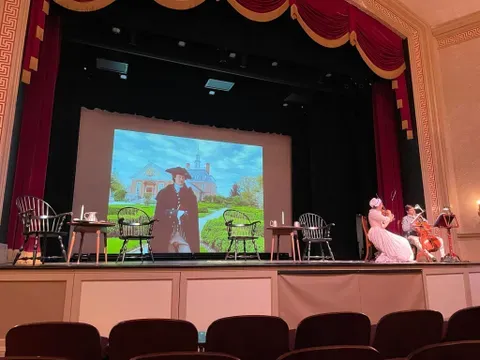
Jefferson & Wythe performance with Baroque musicians, Kimball Theater
Stay tuned!
As mentioned in the opening, interviews are coming!
And since I love letters and all primary sources, don't be surprised to see more posts like this one or even posts sharing random information straight from the media - early American media of course. Example here.
Are you enjoying the blog? Use my online tip jar and buy me a coffee:
There is a huge practical disclaimer to the content on this blog, which is my way of sharing my excitement and basically journaling online.
1) I am not a historian nor an expert. I will let you know I’m relaying the information as I understand and interpret it. The employees of Colonial Williamsburg base their presentations, work, and responses on historical documents and mainly primary sources.
2) I will update for accuracy as history is constant learning. If you have a question about accuracy, please ask me! I will get the answer from the best source I can find.
3) Photo credit to me, Daphne Reznik, for all photos in this post, unless otherwise credited! All photos are personal photos taken in public access locations or with specific permission.
